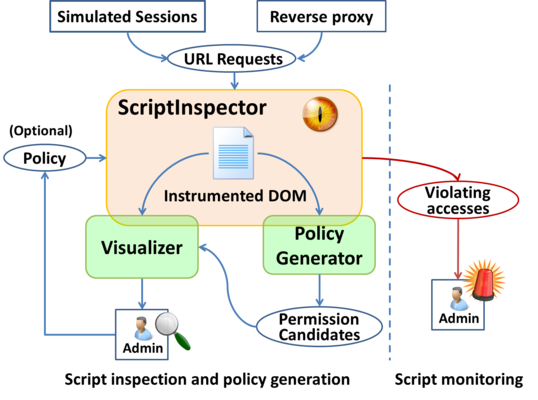UVAToday has an article about Yuchen Zhou’s work on analyzing web scripts: Giving Web Developers Tools to Protect Their Sites and Users, UVAToday, 5 February 2015.
Zhou also devised a tool that developers could use to constrain the activity of the hundreds of scripts they typically embed in a website. In the process of performing analytics or placing ads, these scripts gather user-generated information on a page and send it to their servers. There is no guaranteeing, however, that these servers are secure or that the companies offering these services are trustworthy. In other cases, scripts ostensibly offering a benign service like analytics could take over the page, replacing the site-owner’s ads with their own ads or stealing private user information from the page.
Rather than try to develop rules for every page on a site, Zhou’s tool generates a set of policies that can be applied to the site as a whole. It catalogs the elements of the site based on their content and their relationship to the structure of the page and specifies which elements can be accessed by specific scripts. “We’ve found that using a white list approach – specifying which elements a script can use rather than those it can’t – is more effective because it is easier to automatically identify public elements like an ad placeholder than sensitive information in the page,” Zhou said. The site owner can then review the policies and grant permissions accordingly.

